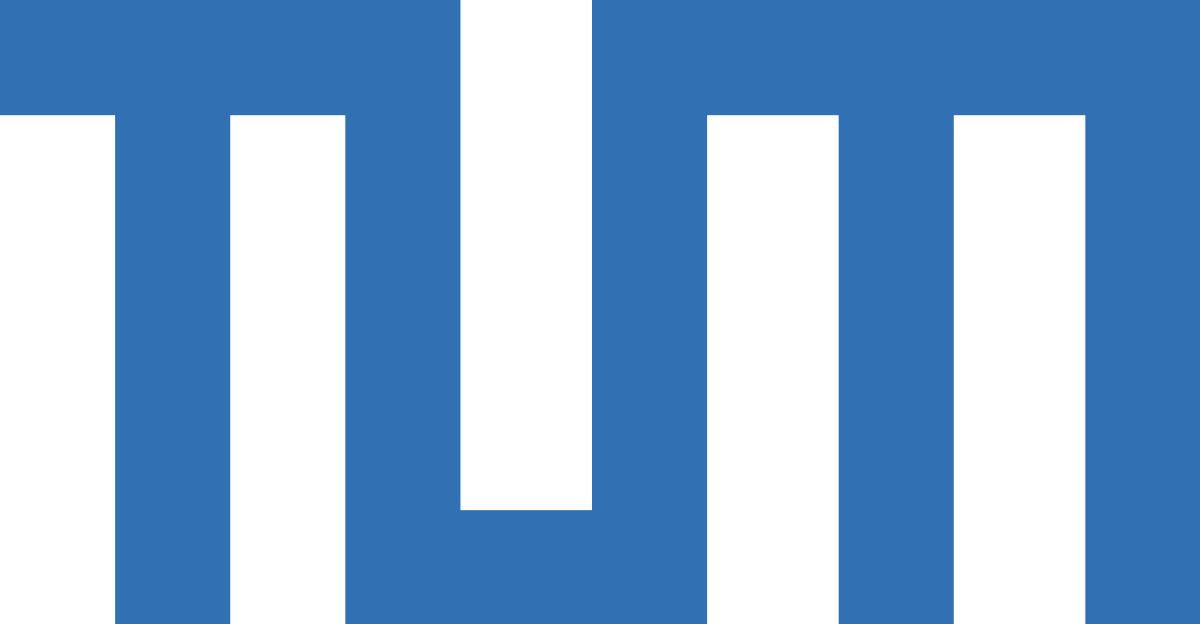
Winter Semester 2023/24
VL Einführung in die Rechnerarchitektur (in German)
| Course ID | Title | Type | Weekly Hours | Teachers | Rhythm |
|---|---|---|---|---|---|
| IN0004 | Einführung in die Rechnerarchitektur | VL | 4V+2Ü | Martin Schulz, Matthias Maiterth, Robert Wille, Tom Peham | weekly |
Lecturer(s): Martin Schulz, Matthias Maiterth, Robert Wille, Tom Peham
Content (in German):
In der Vorlesung werden die Grundlagen von Rechnerarchitekturen und Prozessoren vermittelt. Dies beinhaltet insbesondere:
- Rechnersichten
- Assembler
- Aufbau und Funktionsweise: Hardware, Software
- Maschinensprache
- Kodierung von Zeichen und Zahlen
- Prozessoraufbau
- Komponenten des Prozessors
- Pipelining
- Speicherorganisation
- Leistungsbewertung
Die Übung begleitet die Vorlesung durch praktische Aufgaben, welche die jeweiligen Konzepte illustriert.
Date and time:
- Lecture:
- Mon, 12:00-13:30 Audimax im Galileo
- Tue, 16:00-17:30 Audimax im Galileo
- Exercise:
- Fri, 13:00-15:00 MW 1801, Ernst-Schmidt-Hörsaal
Further information:
- Contact: robert.wille@tum.de
- ECTS: 8
- Hours: 4V+2Ü
- Language: German
- Subjects: Bachelor Computer Science
VI Introduction to Emerging Technologies
| Course ID | Title | Type | Weekly Hours | Teachers | Rhythm |
|---|---|---|---|---|---|
| CIT3330001 | Introduction to Emerging Technologies | VI | 3 | Robert Wille | weekly |
Lecturer(s): Robert Wille
Content:
Computer technologies will change in the near future. The exponential growth of conventional technologies (according to Moore’s Law) will come to a halt, since physical boundaries will be reached soon. At the same time, further system concepts beyond pure electronics emerge. As a consequence, researchers and engineers are currently considering alternative (emerging) computer technologies which work differently to established (conventional) computation paradigms. Examples include quantum computing, reversible circuits, microfludic devices (also known as Labs-on-a-Chip), or field-coupled nanotechnologies. This module provides an overview of these technologies and the corresponding paradigms. This covers an introduction into the respective concepts as well as possible applications. Afterwards, questions of how to efficiently design applications/solutions for these technologies are discussed.
Location and time:
- Lecture:
- Tue, 09:45-12:15 3999, Seminarraum (0509.04.999)
Further information:
- Contact: robert.wille@tum.de
- ECTS: 5
- Hours: 3VI
- Language: English
- Subjects: Bachelor Electrical Engineering
VI Machine Learning - Methods and Tools
| Course ID | Title | Type | Weekly Hours | Teachers | Rhythm |
|---|---|---|---|---|---|
| EI71040 | Machine Learning - Methods and Tools | VI | 4 | Robert Wille, Lorenzo Servadei | weekly |
Lecturer(s): Robert Wille, Lorenzo Servadei
Content:
- Digital Transformation and Machine Learning
- Python, standard libraries, SciPY and NumPy
- Machine learning theory, regularization, error and noise
- Data analysis, pre-processing, visualization
- Introduction to Machine Learning Algorithms
- Introduction to feedforward neural networks and convolutional neural networks, RNNs, LSTM
- Training neural networks, attention models, unsupervised learning, reinforcement learning, hyperparameter optimization
Location and time:
- Lecture:
- Fri, 13:00-15:30 (virtual)
Further information:
- Contact: robert.wille@tum.de
- ECTS: 5
- Hours: 2VI
- Language: English
- Subjects: Master Electrical Engineering
SE Seminar on Topics in Design Automation
| Course ID | Title | Type | Weekly Hours | Teachers | Rhythm |
|---|---|---|---|---|---|
| CIT4320000 | Seminar on Topics in Design Automation | SE | 2 | Robert Wille | weekly |
Lecturer(s): Robert Wille
Content:
In this seminar, current topics from the area of Design Automation are discussed among the participants. A structured introduction into scientific literature regarding paper reading, literature research, presentation techniques, and scientific writing is given. The participants are enabled to independently perform all required steps to present a scientific topic in form of a review paper and an oral presentation.
Location and time:
- Seminar:
- Tue, 16:45-17:30 4981, Besprechung (0509.05.981)
Further information:
- Contact: robert.wille@tum.de
- ECTS: 5
- Hours: 2SE
- Language: English
- Subjects: Master Electrical Engineering (for Computer Science, see below)
Note: If you are studying Computer Science, please use this link instead to sign up for this course.
PR Quantum Computing Software Lab
| Course ID | Title | Type | Weekly Hours | Teachers | Rhythm |
|---|---|---|---|---|---|
| CIT4310000 | Quantum Computing Software Lab | PR | 2V+2P | Robert Wille | weekly |
Lecturer(s): Robert Wille
Content:
Quantum computers are becoming a reality. They offer new and powerful paradigms while also introducing new challenges, which, in turn, need different tools and methods to develop with the new paradigms. Accordingly, the design and realization of corresponding quantum computing solutions differs significantly from the conventional design and, hence, requires new software solutions and design methods. This module provides an introduction into the quantum computing paradigms as provides hands-on experiences on corresponding software tools and design automation methods. Different frameworks focused on quantum computing are presented and used to realize selected quantum algorithms in practice.
Location and time:
- Practical:
- Tue, 13:15-16:30 3999, Seminarraum (0509.04.999)
Further information:
- Contact: robert.wille@tum.de
- ECTS: 6
- Hours: 2V+2P
- Language: English
- Subjects: Master Electrical Engineering (for Computer Science, see below)
Note: If you are studying Computer Science, please use this link instead to sign up for this course.


